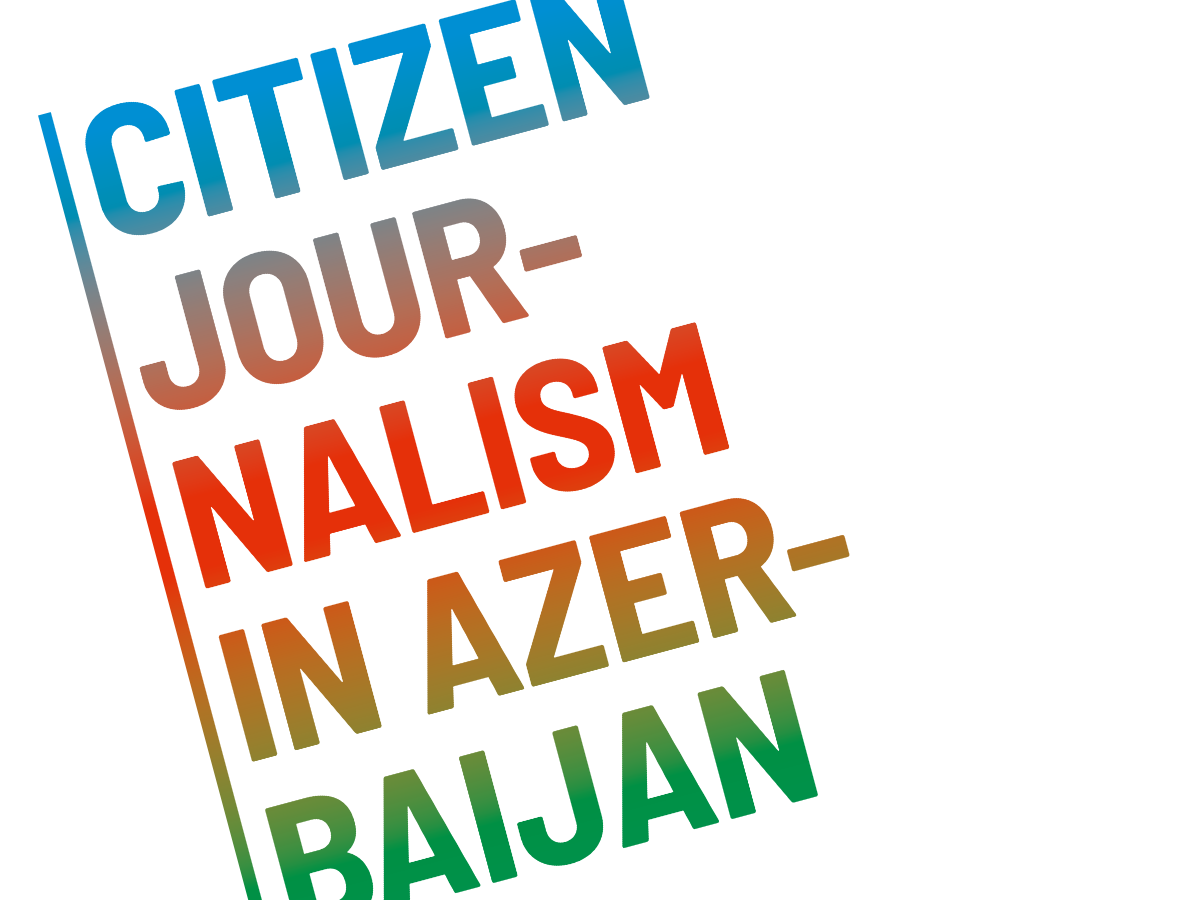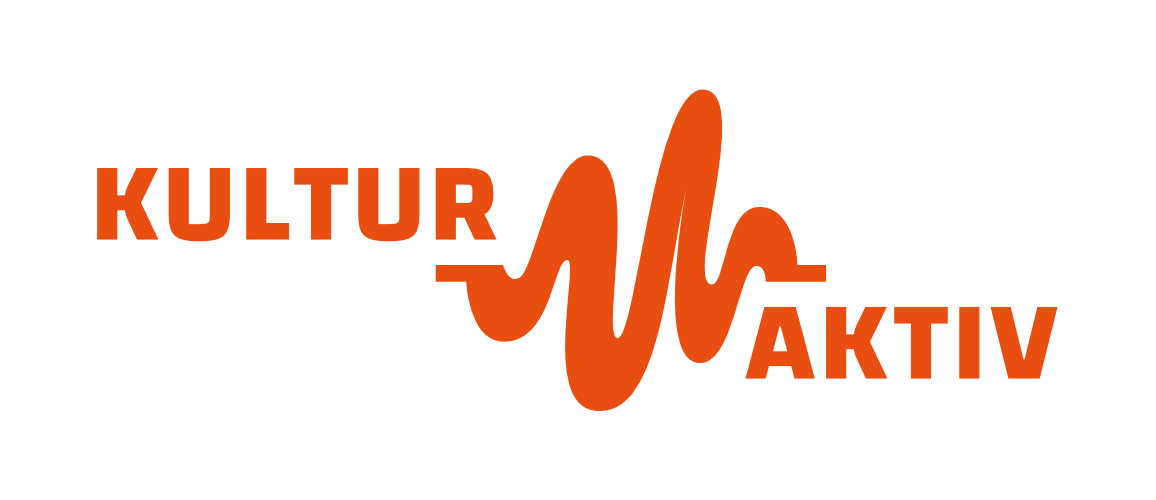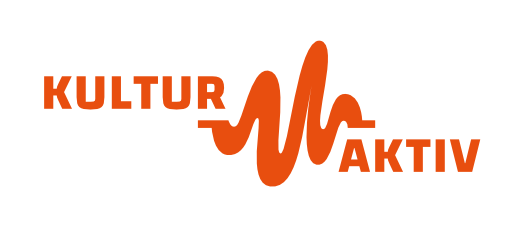
Television is considered to be one of the most popular sources of information in Azerbaijan, with only 5% of the respondents in the recent EU survey indicating that they don’t watch TV at all. Neverthe- less, TV rarely provides objective and transparent news. In practice, this might provide fertile ground for citizen jour- nalists wanting to come onto the scene, report, gain trust and popularity. However, one of the major impediments for citizen journalists in Azerbaijan is that there are almost no media outlets who would commission or even simply share the news they create. Thus, citizen journalists have to depend on their own resources such as personal webblogs. As for the kind of personal blogs, in the last years writing about events and cultural happenings has gained more popularity, rather than covering socio-economic issues. This is mostly due to the fact these topics have become taboo in the current restrictive environment.
Another problematic issue with citizen journalism is its individual scale and its lack of sustainability. Personal blogs usually do not last for a long time and don’t provide continuous reporting. This can be explained by the fact most citizen journalists mostly write as a second probono job that is sacrificed when their daily work commitments increase. So, it’s hard to find any established figures working as citizen journalists whose work one can follow on a regular basis.
Another specificity of citizen journalism in Azerbaijan is the popularity of social media and the accounts of certain public figures that usually write about current events. In general, 60% of EU survey respondents reported to use the Internet as their primary news source, and 49% use social media for news. Among social media networks, Facebook is the most popular in Azerbaijan and people actively use it as a source of news. Approximately 45% of the population was reported to use Facebook. So, it’s understandable that certain public figures, and social activists report about events that traditional media outlets ignore or prefer to dismiss. So, with time these accounts have gained popularity and become a source of reference for what happens in society. Even though in most cases there is no fact-check mechanism that can be applied to the reports provided by these accounts, usually it’s the level of public trust in the figure that defines the validity of the news. Despite the fact that the popularity of Instagram has also increased in recent years – especially among the younger generation – Facebook remains the main source of news from personal accounts.
Even though social media tries to compensate for a lack of independent voices in traditional media, its coverage is still limited. If the traditional forms of reporting such as newspapers, radio and TV programs were replaced, it would mean that the news still wouldn’t reach many of the people living in rural and remote villages. Moreover, given the algorithmic preferences of popular personal accounts, the news that one sees might be quite selective and only coming from that person’s “filter bubble”.
All in all, the situation with citizen journalism in Azerbaijan is not flourishing either. There is an online Region TV platform that reports on news from different parts of the country, but usually the stories from rural areas are only covered in depth when some journalist working in Baku goes out in the countryside to cover something.
Despite all of the drawbacks, I find a particularly interesting form of citizen journalism emerging in Azerbaijan. The form can be characterized as reporting on a certain subject that is prepared on a regular basis by small groups of activist volunteers. In order to picture more clearly what this form represents in Azerbaijani context, I will provide a brief description of the “Mahalla” project, which took place when people were being evicted from their homes in an old central neighborhood in Baku. As part of urban regeneration plans, the Sovetski neighborhood in the central part of Baku with deep-rooted traditions and tight neighborhood networks was the site of mass evictions when the neighborhood was slated to be replaced by a park. The neighborhood residents had either received minimal financial compensation or had been offered housing in the outskirts of the city. This massively impacted their daily lives, economic activities, and ripped them out of their community. The small protests and the whole process was haphazardly reported by the traditional media outlets. However, the creators of “Mahalla” took a distinct stance via delving deeper and documenting personal stories and provided more rigorous in-depth coverage from the field during the eviction process. They used strong visual tools in order to tell the story of vanishing neighborhood and narrate the stories of its residents after their displacement. So, this project is a perfect example of a platform that was established to provide an in-depth review of a certain event over an extended period of time by volunteer journalists.
If we look beyond the traditional reporting of news as a form of citizen journalism, another form popular form in Azerbaijan is writing about human stories. In the recent years, narrating the stories of particular individuals or communities that allow us to look at the broader picture from a unique perspective has become increasingly popular. One of the journalists that regularly writes about social and cultural phenomena on different online platforms is Sheyda Allahverdiyeva. She has covered topics ranging from the struggles of “Soviet-type” entrepreneurs in contemporary Azerbaijan, to the phenomena of summer houses on the Absheron peninsula and their traditions. I decided to conduct a brief interview with her, to see what she thinks about citizen journalism in Azerbaijan and what motivates her to find and write about these topics. Below you can read the full text:
Do you think Citizen Journalism is something important for Azerbaijan? Why?
Sheyda: Citizen journalism is an inevitable and increasingly important thing in any part of the world. In Azerbaijan, this type of news dissemination has the potential of becoming the response to government controlled key media outlets, therefore, is of particular importance in my opinion.
What are the topics that you like to write journalism pieces in Azerbaijan?
Sheyda: I am specifically interested in culture, unique and disappearing professions and historical events through the point of view of ordinary people.
Why do you prefer to specifically cover those topics?
Sheyda: I believe this has to do with a personal urge of attempting to “stop the time” by memorializing it, whether this is by capturing moments through photography, journaling, writing about, and/or remembering or recalling events and people.
What are the usual challenges that you face when you prepare reports on those topics?
Sheyda: Often I need permission from government officials to shoot in some locations or research certain topics for unexplained reasons.
Are there any other citizen journalists from Azerbaijan whose works or accounts you follow closely? Who are they?
Sheyda: I wouldn’t say that I closely follow works or accounts of any Azerbaijani citizen journalists in particular; however, there are several thought leaders whose ideas I often find interesting.
I also spoke with Lala Aliyeva, a professionally trained journalist who worked as an editor at an Azerbaijani online platform based in Georgia – Chaikhana. Lala has extensive experience interacting with various journalists from Azerbaijan and she offers an insightful view of the state of citizen journalism in the country. Below is the text of our interview:
Do you think Citizen Journalism is something important for Azerbaijan? Why?
Lala: I would say Citizen Journalism is crucial for Azerbaijani media landscape today. Due to the political situation in Azerbaijan and the lack of freedom of expression where the government tries to silence critical voices, including journalists by jailing, harassing and torturing them and their relatives, in addition to blocking the media websites, many of media outlets rely on the content provided by citizen journalists. Although they lacking quality and they are difficult to factcheck. Meydan TV is a good example of working with citizen journalists. Throughout the years they could manage to create the network, people trust them and send their stories or stories they witness although the government represses them too (because of collaboration with these media outlets).
As editor of Chaikhana platform what were the most frequent topics that journalists wanted to write about? Why do you think these particular topics were popular?
Lala: As Chai Khana is edition based online platform, it is difficult to define certain topics in as much as the topics and (in many cases but not always) the story ideas are assigned to the local reporters from local managers of the project. However, I have noticed the high interest in covering the youth and more positive human stories. Either some of them are tired of reading heavy news or the situation in the country affects them (fear, self-censorship).
Was it challenging to find Citizen journalists in Azerbaijan who would cover interesting human interest stories? If yes what do you think are the reasons behind this?
Lala: Chai Khana is not the best example of citizen journalism. Chai Khana does not work with Citizen Journalists as it does not cover news. Chai Khana has been working with beginners or professional journalists/filmmakers/photographers. We have been covering in-depth human stories (features). But in general, it was always difficult to find journalists who reply to Chai Khana’s criteria. I would not call it “the lack of professionalism” as those who approach to Chai Khana know what is the balanced story, but the lack of skills is another big problem. Again, the root of it – the situation in the country, repressions and the lack of quality high education in journalism and professional mentorship. Since 2014 when almost all international organizations stopped their operation in the country, it became almost impossible to organize trainings and workshops for local journalists. In order to get the skills they have to travel somewhere abroad, in many cases to Georgia.
Are there any other citizen journalists from Azerbaijan whose works or accounts you follow closely? Who are they?
Lala: Unfortunately, I don’t know anyone among citizen journalists. I am closely following professional journalists working with Meydan TV, Azadliq and Turan or freelance journalists working with international outlets.
In her interview, Lala mentioned a very important point about the state of citizen journalism in Azerbaijan that I would like to point out in conclusion. The lack of training and education opportunities for media representatives negatively influences the quality of reporting. As citizen journalists do not necessarily need to have a media-based education, specifically tailored intensive training could help willing citizens to become reporters. However, the fact that the overall quality of education in media and journalism is low means that it’s also hard to find competent local trainers. However, in order to further thrive citizen journalism in Azerbaijan needs well trained and competent people to pass their knowledge to a wider audience. The second crucial factor for creating a fertile ground for citizen journalists is the establishment of a sound platform that would enable let them to better spread their voices.
Text: Published anonymously to protect the author, Autumn 2018
Note This article reflects the opinion of the author. It does not necessarily reflect the opinion of Kultur Aktiv.
Traces of Togetherness
The article was written as part of the project “Traces of Togetherness“.
Gefördert durch das Auswärtige Amt der Bundesrepublik Deutschland.


